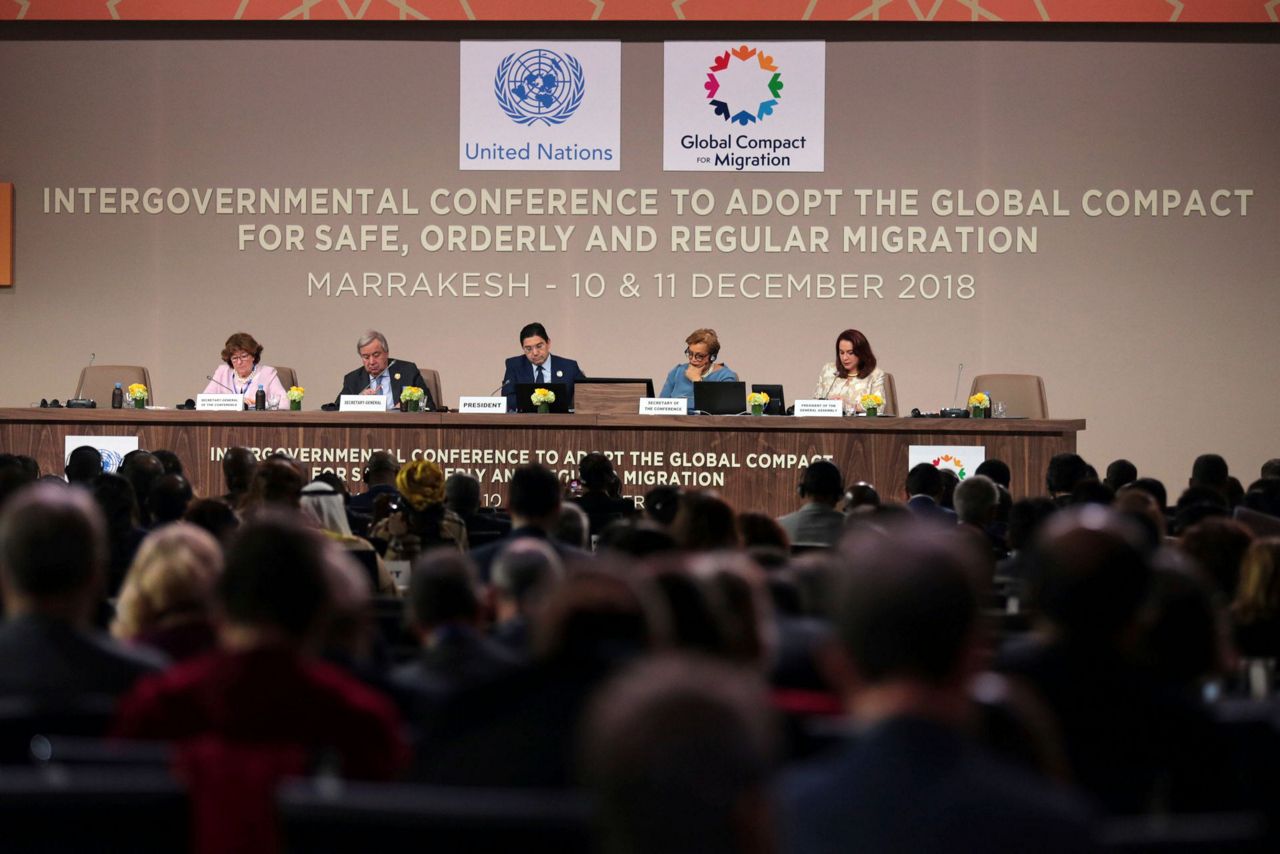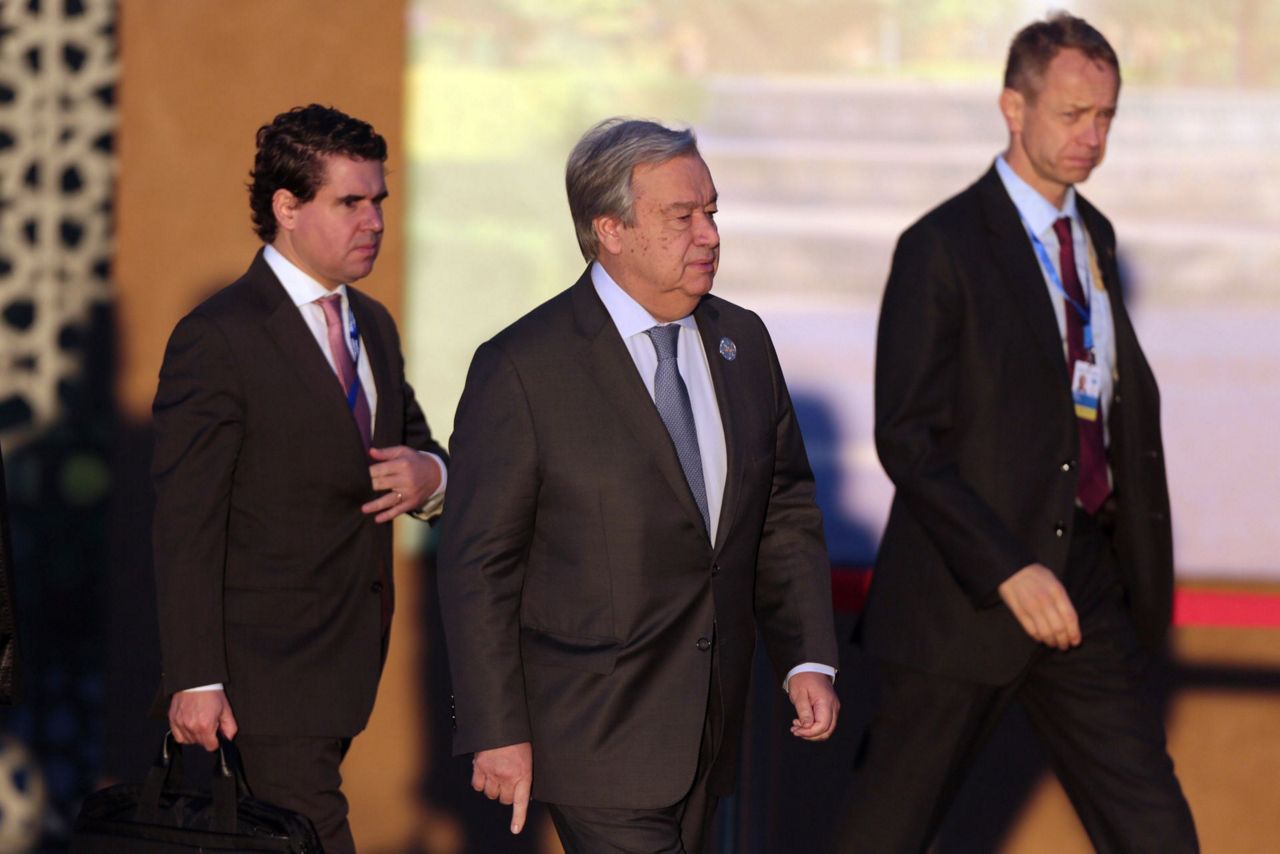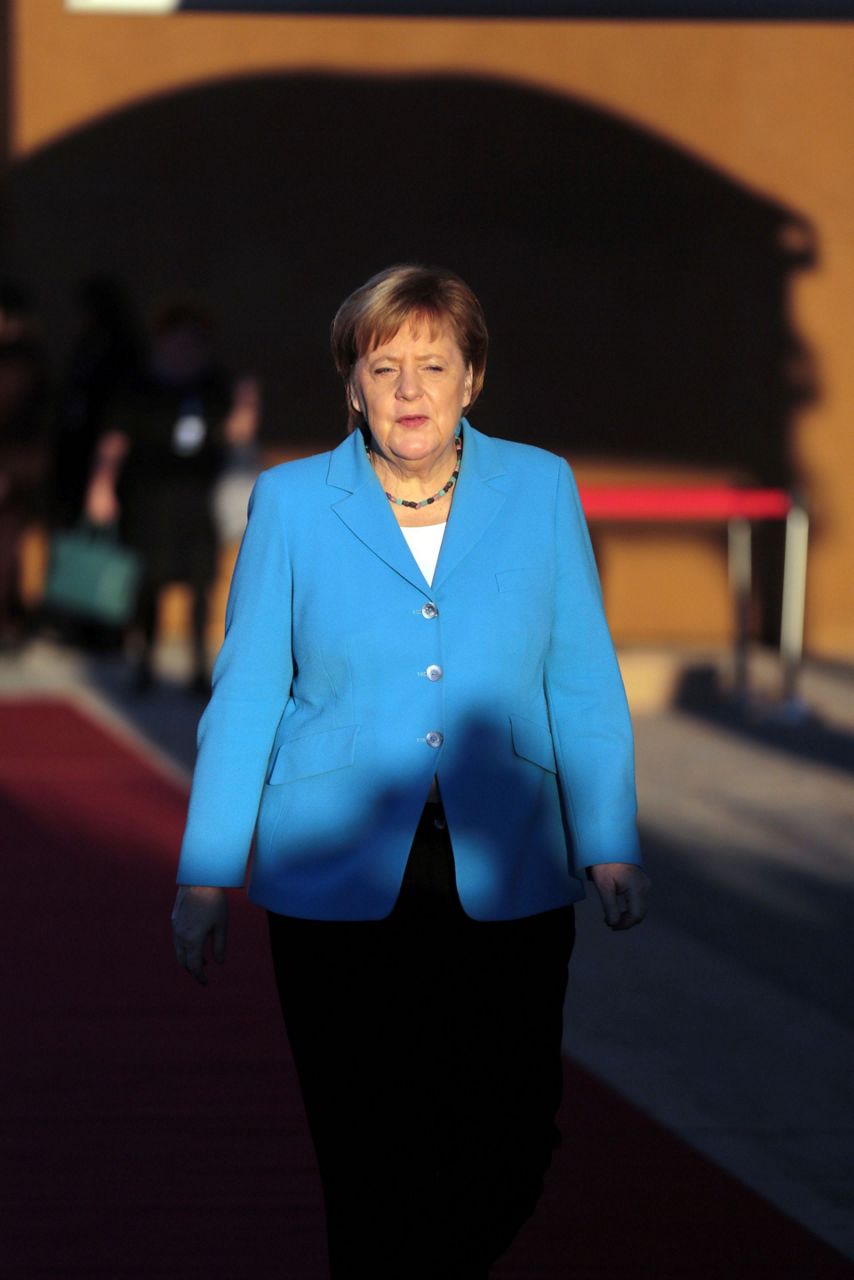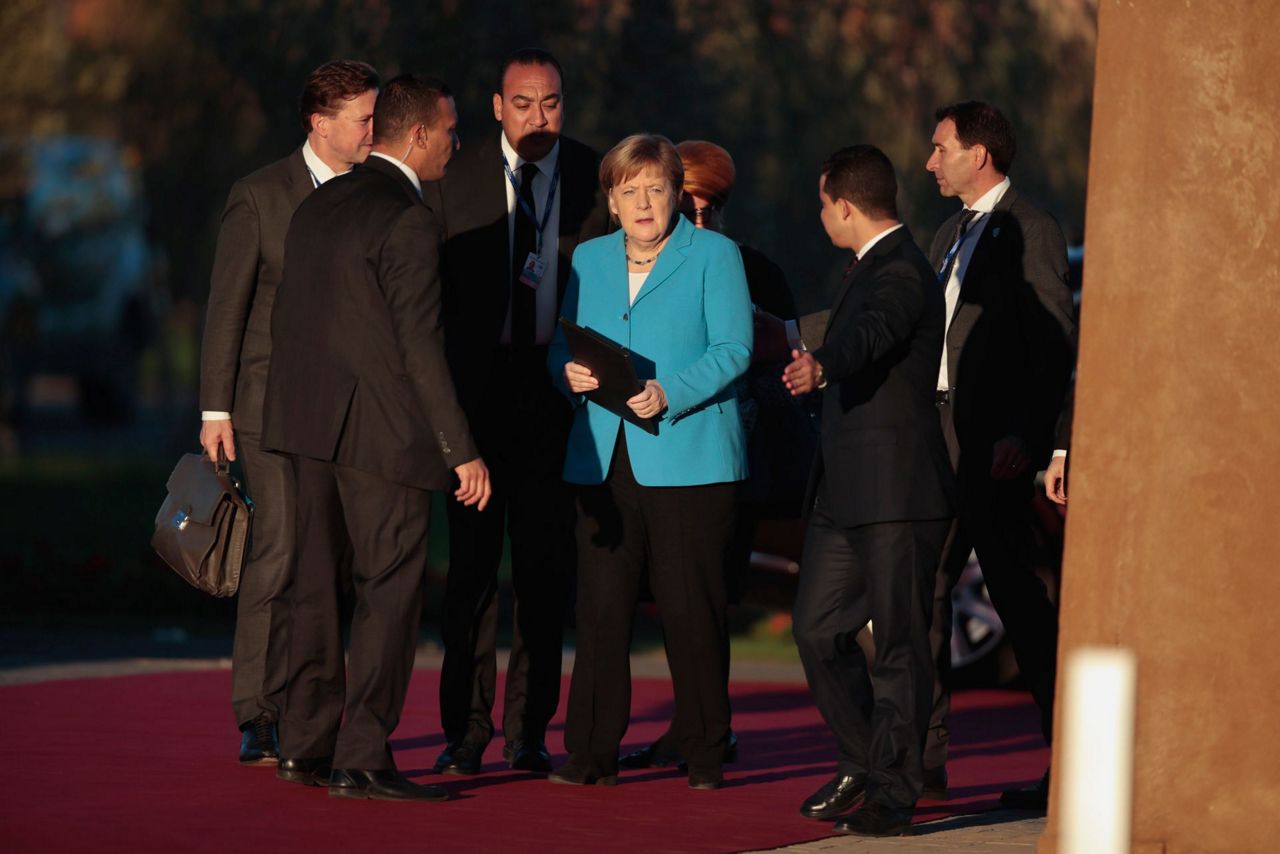MARRAKECH, Morocco (AP) — The Latest on the U.N. migration conference (all times local):
12:40 p.m.
Belgian Prime Minister Charles Michel says the U.N.-backed Global Compact on migration is being misused by some political parties to spread disinformation.
Michel, whose coalition government split over his support for the pact, said in Marrakech Monday that the text has sparked "lively debate" in Europe.
But he says it is being exploited by political parties "to spread lies and mistruth."
Austria, which holds the European Union's presidency, is refusing to sign the document, as are Bulgaria, Hungary, Poland and Slovakia, whose foreign minister threatened to resign over his country's stance.
The pact has become a hot topic and stands as an easy target for populists ahead of the EU elections in May.
Michel said that in signing the compact, "my country will be on the right side of history."
___
10:55 a.m.
The Norwegian Refugee Council says a nonbinding international deal on migration "recognizes the rising threats of disaster displacement and impacts of climate change and brings hope for the people affected."
Nina Birkeland, a spokeswoman for the group, says the text "is the first comprehensive U.N. document where the international community makes specific commitments to address natural hazards and climate change as drivers of cross-border displacement."
The accord was agreed by more than 160 countries Monday, but is rejected by the United States and some other Western nations.
Birkeland said Monday that when people cross borders, international cooperation "is not only wanted but required."
The Norwegian humanitarian organization that works in more than 30 countries added: "We regret that the formal review will only take place every four years, which we fear will not be sufficient to ensure necessary action."
___
10:35 a.m.
More than 160 countries have agreed on a nonbinding U.N. migration accord that seeks to ensure the safe, orderly and humane movement of people around the world, over the outspoken disapproval of the United States and several other countries.
High-level government delegates including German Chancellor Angela Merkel have given their backing to the U.N.'s Global Compact for Migration approved by acclamation by 164 countries Monday, culminating years of efforts supported by U.S. President Barack Obama but rejected by the Trump administration.
Defenders say migration can help national economies by rejuvenating the workforce in aging rich countries and by providing a needed source of cash to poorer countries through remittances. They say orderly migration will save lives.
Opponents say the pact could challenge national sovereignty and they fear an influx of migrants.
___
9:50 a.m.
United Nations Secretary-General Antonio Guterres has sought to dispel "falsehoods" and "myths" over an international agreement on safe, humane and orderly migration.
The U.N. chief spoke at the start of a two-day international conference about the "Global Compact on Migration," moments before about 150 countries were set to agree to it by acclamation. The United States and at least seven other countries have pulled out amid concerns about migrant flows and national sovereignty.
Guterres called the compact a "road map to prevent suffering and chaos" aimed to benefit everyone. He said over 60,000 migrants have died on the move since 2000, calling that "a source of collective shame."
He said the pact won't allow the U.N. to impose migration policies on member states and is not a legally-binding treaty. He said most migration is not from the South to the "global North," but among states in the south, and added that it was not true that developed countries don't need migration.
Guterres said he hoped that countries not present would join one day.
___
8:25 a.m.
Top U.N. officials and government leaders from about 150 countries are uniting around an agreement on migration, while finding themselves on the defensive about the non-binding deal amid criticism and a walkout from the United States and some other countries.
The Global Compact for Migration has proven a test for globally minded policymakers who want to ensure safe and orderly migration of people displaced by issues like war, economic necessity and climate change.
They have run into stiff political headwinds, mostly in parts of the West that want national borders to remain sacrosanct.
German Chancellor Angela Merkel joins U.N. Secretary-General Antonio Guterres among the biggest names in Marrakech for the two-day conference that is set to agree, but not sign, the compact by acclamation shortly after the opening Monday.
Copyright 2018 The Associated Press. All rights reserved. This material may not be published, broadcast, rewritten or redistributed.






